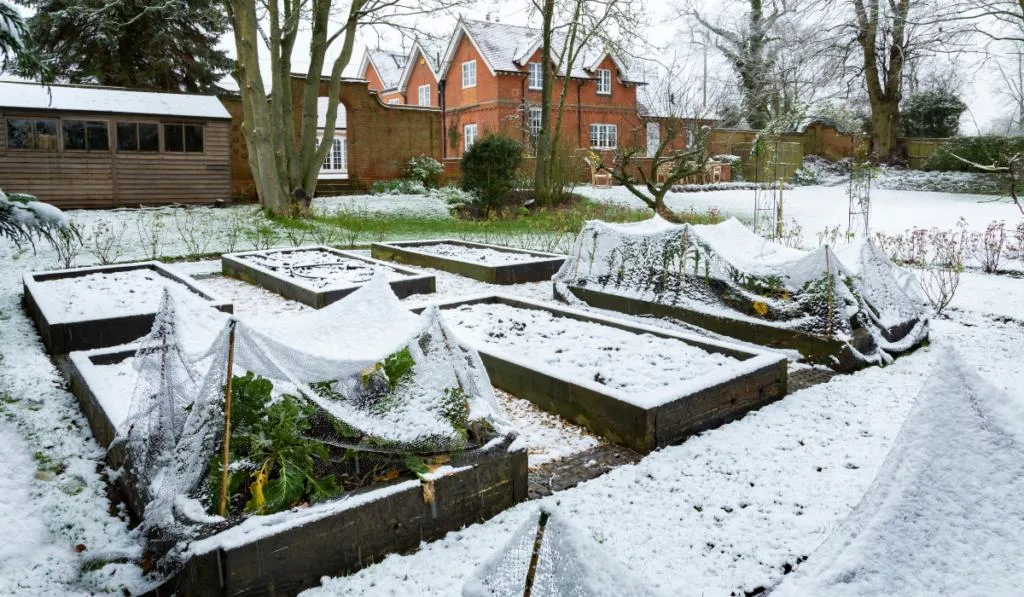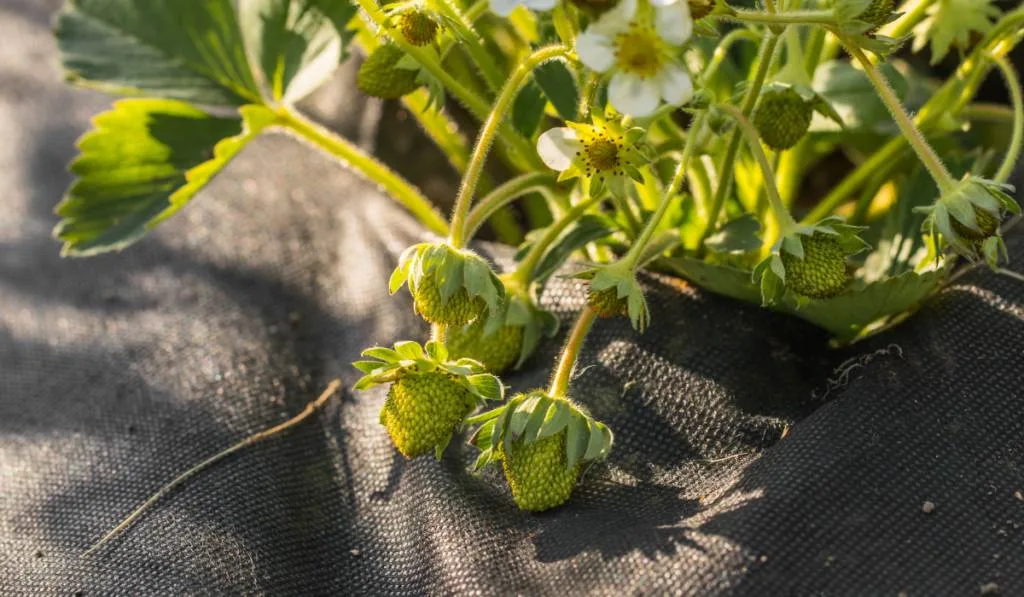If you are a newbie at raised bed gardening, having a lot of questions is totally fine. This article will address all your common concerns such as can my raised bed freeze? What is the ideal temperature for my flowers? How can I protect my raised bed from freezing?
Filling your raised bed with healthy soil, adding amendments to it, and covering it with cover crops, will help your raised bed garden flourish, but you need to protect it from harsh weather for it to survive.

Raised garden beds can freeze but there are several steps you can take to help prevent frost damage to your plants.
Raised bed gardening is different from traditional in-ground gardening. Here are some steps you can take to make it work.
Table of Contents
Raised Bed vs In-Ground Garden
You can choose whether you want a raised bed garden or an in-ground depending upon the climate and soil conditions of the area you live in. If you are residing somewhere where the climate is wet and soil conditions are poor, then raised beds are a good choice.
Nonetheless, plants need to be looked after whether they are grown in a raised bed or an in-ground garden. Winter is a crucial time when your plants need care and attention the most.
Slight ignorance can result in frost which will harm your plants by forming ice crystals in the plant’s cell. Frost also wilts the leaves of the plants and turns them black.
However, the good news is that a raised bed will thaw much quicker than the ground in winter. The soil in the raised bed warms up much quicker since the raised bed does not share soil with the ground.
Moreover, since raised beds do not occupy much space they are easy to cover during winter. The height of the raised beds allows the soil to drain quickly during rain and snowfall so you can fulfill your gardening passion throughout the year.
So now you know that winter can be dangerous for your plants if you do not tend to them properly. Let’s take a look at what is the ideal temperature for your plants.

What Temperature Will Hurt the Plants
It’s not the temperature itself but for how long the temperature remains below the freezing point that damages the plants. Low temperature can be harder for some plants to tolerate but if the freezing temperature lasts for long it can be harmful to the plants.
Not all plants have the same capability to deal with different temperature levels. Some hardy plants can endure cold weather but tender plants can get injured by freezing temperatures. Tender plants include:
- Citrus
- Avocados
- Bougainvillea
- Fuchsias
- Peppers
- Tomatoes
- Beans
- Corns
Frost occurs when the ground temperature drops below the freezing point (0ºC/32ºF). When frost clears, plants are thawed.
This repeated freezing and thawing can also be damaging to plants. Cold winds take away the moisture from the plants before it can be consumed by the roots.
It’s important to know the different temperature ranges during winters so you can take the necessary steps to protect your plants.
| Light freezing | 29° to 32° F |
| Moderate freezing | 25° to 28 F |
| Severe freezing | 25° F or below |
A light freeze can kill tender plants but if the temperature is 25° F or below it can be severely destructive for all your plants and vegetables. Even the hardy plants can turn brown and die due to extreme frost.
Now you know how freezing temperatures can be harmful to your plants so it is better to take steps and prepare your raised bed garden before winter arrives so that all your hard work doesn’t go to waste. Here are some tips to help you save your garden during winter.
How to Protect Your Raised Bed From Freezing
The biggest advantage of a raised bed garden is that it gives you the control and you can decide how you want to organize and operate your garden. Some hardy plants might not need any protection against the frost, but tender plants will need to be taken care of.
Location
Make sure you build your raised bed in a place where it can get at least six to eight hours of sunlight. If the plants remain warm during the day in winter, and you cover them at night they can easily survive the frost season.
Water the plants
If frost is predicted in your area, it’s better to water your plants. Plants are less likely to be damaged by the drop in temperature if they are hydrated. It is because the damp soil is capable of holding 4x more heat compared to dry soil.
When you water the plants, the moisture released by the damp soil warms the ground air as it conducts heat.
Use covers
If you are growing tender plants in your garden, you can cover them with a sheet or a garden fleece so that a warmer climate can be created underneath for your plants. Allow some breathing space for the plants and do not let the covers come in contact with them.
Make sure to cover them before the sunset. However, do not forget to water your plants before covering them. Remember to remove the covers once the temperature goes back to normal. You do not want your plants to overheat!
Soil warmers
If you are willing to invest some money, you can also use soil warmer to keep your raised beds warm during frost season. It works on electricity and can be a little expensive.
Spread mulch
If there is no mulch already present in your raised bed, spread 2 to 3 inches layer of organic mulch to make your plants frost tolerant. But mulch should be pulled back from the roots of the plants once normal temperature resumes.
Use landscape fabric

You can use landscape fabric as an insulator for your raised bed. It will prevent the soil from touching the cold ground hence, keeping the soil warm. However, if the fabric is heavier, the soil will take longer to drain.
Even though winter can be a harsh season for many tender plants you do not have to worry anymore! There are ways to keep your raised bed warm and healthy so follow these tips and have a happy winter gardening season!
